Despite being assigned male at birth, Jamie Zapata felt like a girl from as young as she can remember. Born in San Antonio, Texas, in the 1970s, hardly anyone at the time knew what “transgender” was. All Zapata knew was that she didn’t want to be a boy, and she began growing her hair out and trying to express herself as a female.
However, her school wouldn’t let her wear female clothes, and she faced constant bullying and harassment, so after eighth grade, Zapata dropped out of school. As she grew older, she struggled to find work and was often let go for being trans. Feeling rejected by society, Zapata resorted to working in the modeling and entertainment industry in order to support herself. She eventually felt her life was meaningless and wished it would end.
After 15 years in the entertainment industry, Zapata had a major wake-up call when she received an HIV diagnosis. In that moment a few years ago, she realized her life is valuable and decided to make a change for the better. In 2017, she obtained her GED and became a licensed Realtor, working for Coldwell Banker D’Ann Harper, Realtors in San Antonio. She got the hang of the industry quickly, and last year, her office named her “Rookie of the Year.”
Over the years, and especially once she became a Realtor, Zapata noticed rampant housing discrimination against LGBTQ people — and she learned that they weren’t protected by the federal Fair Housing Act. So earlier this year, Zapata started the San Antonio chapter of The National Association of Gay and Lesbian Real Estate Professionals, which advocates for fair housing laws and has an LGBTQ-friendly referral network for the real estate industry. In April, Zapata is traveling to Washington, D.C. to speak at NAGLREP’s LGBT Housing Policy Summit.
Zapata, now 44, feels like she’s come full-circle: she was once bullied for being transgender, and now she’s leading an advocacy group to fight for LGBTQ rights. She’s also a board member with the Transgender Education Network of Texas, the San Antonio LGBT Chamber of Commerce, and the Pride Center San Antonio, where she co-hosts a monthly LGBTQ support group.
This is Zapata’s story of coming out as trans, getting a life-changing HIV diagnosis, and finding her passion fighting for LGBTQ equailty and housing rights.
Profiles in Pride: When did you realize you were transgender, and what was coming out like for you?
Jamie Zapata: I’d say I felt like a girl pretty much since I was 3 years old, as far back as I can remember. I always felt like a girl and always wanted to play with girls’ toys.
I also realized at a young age that I was attracted to boys, but I knew I didn’t want to be a boy. I didn’t know why; I just thought something was wrong with me. I’d pray that I’d wake up “normal.” Back then as a kid, I didn’t even know what transgender was, and I didn’t know any other people who were trans.
Around age 10, I started letting my hair grow out and I really didn’t want to be a boy at all, but I did not know what it meant; I just knew that I wanted to be a girl and nobody was going to stop me. I started becoming more and more feminine, but at school they wouldn’t really let me dress like a girl, though everybody thought I was a girl.
Everybody hated me and started beating me up, so that was pretty hard. I just kept trying to live as a girl and I’d get sent home from school. Eventually I had to drop out, because they wouldn’t let me be me at school. It was hard for my family, but I told them this is the way it’s going to be; I won’t be able to go to school because they won’t let me go as a girl. I was around 14 when I had to drop out, after eighth grade. I didn’t go to high school.
It was hard because I couldn’t go to anyone and say, “I’m transgender,” because back then I didn’t even know what that was. I just said I wanted to be a girl, and that’s it. Then my parents took me to a psychiatrist, who told them, “Your daughter is transgender, there’s nothing wrong with her. You have to accept her because nothing is going to change.” It was very difficult, especially not knowing anyone else and feeling like I was the only one in the whole world.
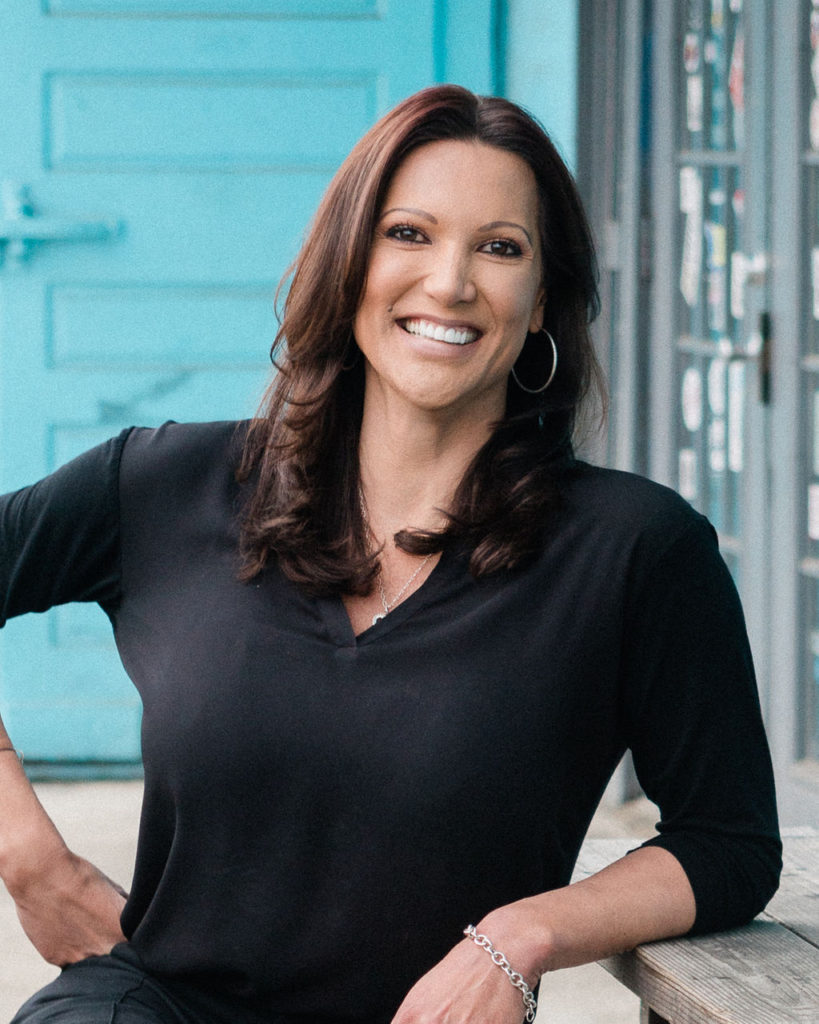
PIP: What did you do once you dropped out?
JZ: When I dropped out, my mother was completely supportive and told my whole family they had to accept me. My birth name is Jamie and I don’t have a middle name luckily. My mom said to my family, “You have to accept Jamie for who she is, or we’re going to leave; I’ll take her and not come back.”
My mom was my biggest supporter, but my dad said, “If you’re not going to school, you don’t need clothes, makeup, or anything.” I didn’t get an allowance, so I had to basically steal or borrow everything I had: clothes, makeup, shoes, underwear, everything. Or I had to find boyfriends to buy it for me.
I started living full-time as a girl at age 14. So from 14 to 17, it was a very hard time. I got my first job when I was 17, so I finally had some money and got my own car. I just got through all those years by saying I’d graduated from high school, even though I didn’t. To get my real estate license, I had to get the GED, so I finally did in 2017.
PIP: How did you find your way into the real estate industry?
JZ: You know, it’s difficult being trans, having to pay for all these surgeries and not having any money. I was actually doing modeling and entertainment for about 15 years, because I’d been fired from so many jobs because they didn’t want me in the restroom, or people would say I was a distraction and other employees couldn’t focus on their work, so I’d get fired. One girl tried to sue me because she lied and said I attacked her in the restroom.
After that I didn’t know what to do, so I got into entertainment. Then in 2017, I was diagnosed with HIV, and that’s when I realized life had to change. Unfortunately, I was being careless, because I didn’t value my life and I really just wanted to die at that point.
For some trans people — though I can only speak for myself — the way I felt was, what was the point? It wasn’t about being safe; it’s not like we don’t know what we have to do to be safe or careful. It’s more about, how do we get people to care about themselves? Why would I care for myself if I’m just discriminated against in school, if I don’t have support from family, or if I don’t have support in the workplace? If nobody wants to include us in society, then what do people think will happen to us? Why would I care about my life or even care if I got HIV or cancer or got run over by a truck? Why would I even care?
But once I was diagnosed, I said, “Oh wait, maybe I don’t really want to die. I just need to make a change and do something better and maybe set a better example for others.”
I decided to change careers and get my GED. I’d always wanted to do real estate because my parents like to buy and sell homes every few years, and I always helped them look for the houses and negotiate. It always interested me, but I didn’t think I’d be able to actually do it as a trans person because it’s hard to be accepted anywhere. But I said, you know what, if other people can do it, I can do it, and if it doesn’t work out, at least I tried. So I got math tutoring, I took the GED and passed, and I immediately started my real estate courses. I passed and got my license in 2017.
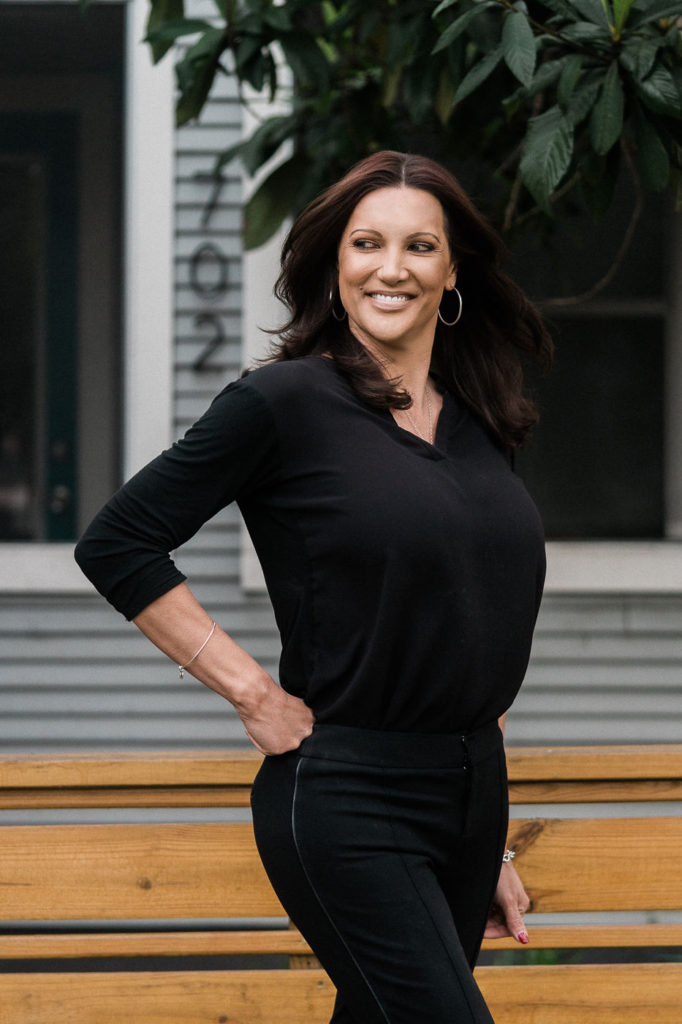
PIP: It sounds like getting your HIV diagnosis was very transformative for you. Is there anything you want people to know about HIV?
JZ: The good thing is the medicine works; I can’t pass the virus to anyone as long as I’m on effective treatment, which is great. The main thing for people to know is there is treatment.
There is also PrEP, which may have helped me if I’d been on it. But if people feel they’re at risk for contracting HIV, PrEP is over 90% effective at preventing HIV.
I want people to know that it’s not something to be embarrassed or ashamed about. It can happen to anyone. I have friends who were born with it; it was passed on from their mother. I have friends who contracted it because they were cheated on. Everyone’s circumstances and stories of how they contracted HIV are different, but it’s nothing to be ashamed about, and the best thing is to get on treatment.
As long as you’re on treatment, you can be healthy and live a long life. It’s just like any other disease; it can be managed, but if you don’t treat it, you’ll eventually get sick. But if you’re on treatment, you can live a long healthy life and not pass the virus on to anyone else.
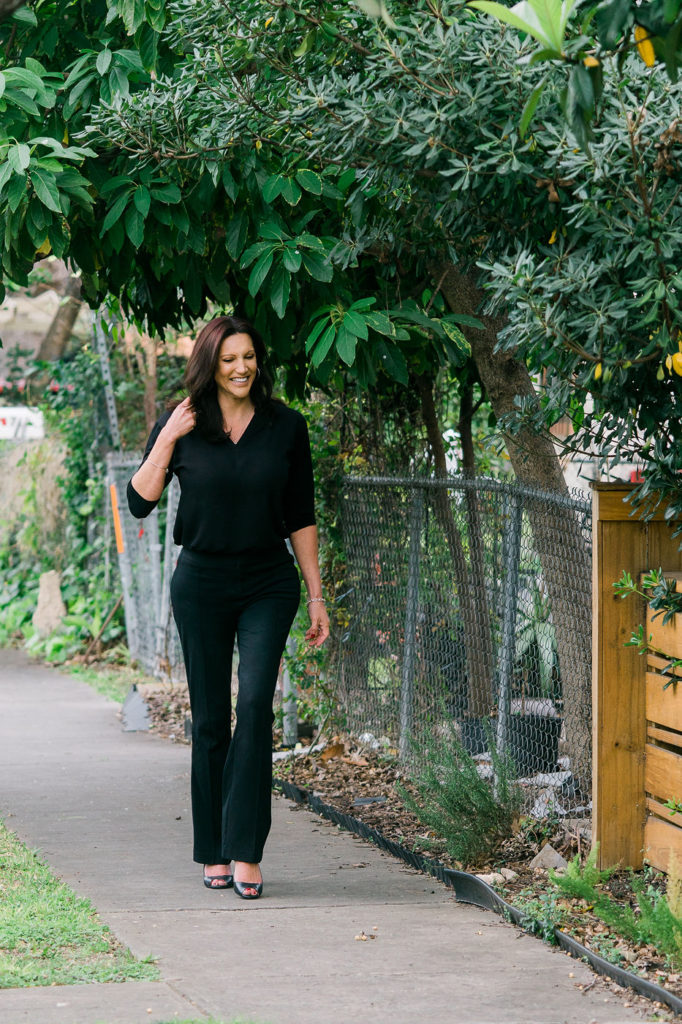
PIP: That’s great. So how did you get involved with NAGLREP (National Association of Gay and Lesbian Real Estate Professionals)?
JZ: When I started in real estate, I thought, there has to be some sort of network for LGBT people. I found NAGLREP online, and it advocates for equal and fair housing rights for LGBT people because the Fair Housing Act doesn’t cover us for discrimination — it doesn’t protect us.
The organization advocates to add protections for LGBT people in the Fair Housing Act. I thought it was great, and there wasn’t a local chapter, so I contacted Jeff Berger, the founder of the national organization and asked him about starting a chapter in San Antonio. I contacted him a few times, and he said, “If you’re serious, get some people together and talk about it and see if they are interested, and let me know.”
Around Christmas, I got together with about 20 other Realtors and industry professionals here in town, mostly LGBT-identified, and a few allies. They all said, “Let’s do it!” So I got approval at the national level and became the founding president of the San Antonio chapter, which we formed this January.
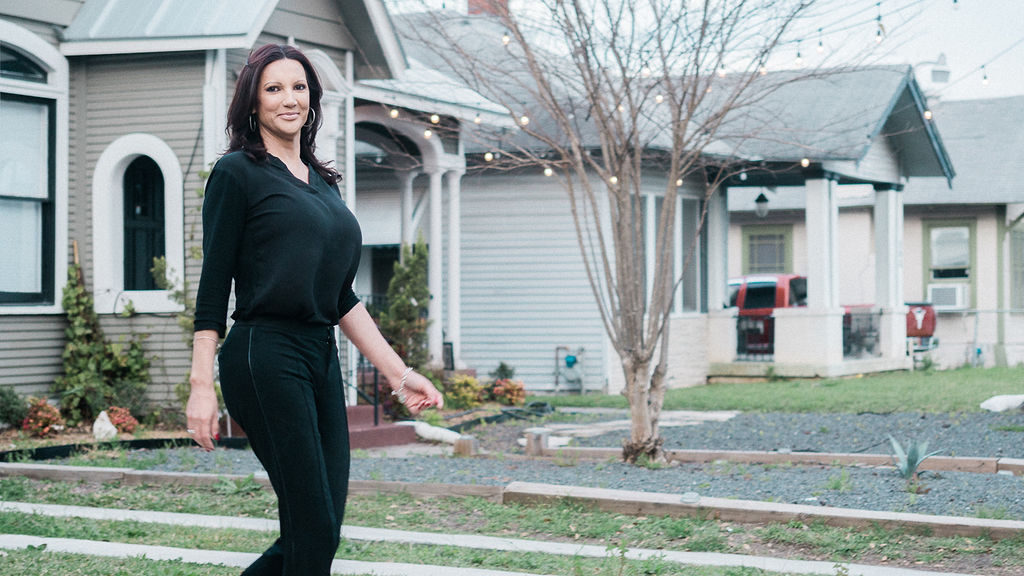
PIP: What will you be doing as president?
JZ: I selected the leadership committee, which is a group of five other real estate professionals who will be planning lunch and learns and networking events on how to be more inclusive of the LGBT community in real estate and more sensitive to their needs.
The average percent of LGBT homeowners is only 49% nationwide, compared to the overall average of 64%. I want to increase awareness that there’s a disconnect for LGBT homeownership. Part of it is where we want to live; that part of town is usually more expensive. Usually the LGBT neighborhoods are closer to downtown where it’s not as affordable to buy, so we end up renting or avoiding the buying process altogether in fear of discrimination.
We’ll be advocating for equality for LGBT people and also educating others. We’ll have mixers and monthly or quarterly events. The San Antonio Board of Realtors will be hosting the lunch and learns that we’ll have quarterly, and we’ll have a Pride event; hopefully we’ll be marching in the Pride parade with a NAGLREP banner.
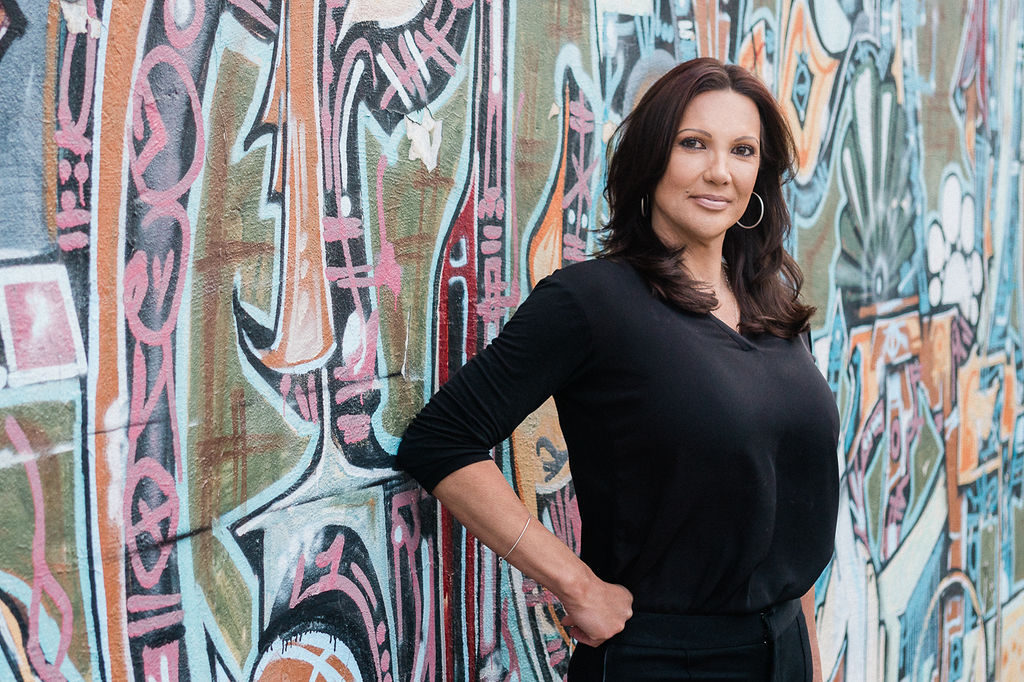
PIP: I know you’re speaking about the NAGLREP 2019 LGBT Housing Policy Summit; tell me about that.
JZ: It will be April 10 and 11 in Washington, D.C. NAGLREP has this summit annually, and it’s an opportunity for us to speak to legislature about the fact that people are still discriminated against regularly, but some people don’t necessarily report it. We’re going there to advocate in support of the Equality Act, which will add federal protections for LGBT people, including housing.
I’ll be leading a panel discussion about discrimination and my personal experience. A lot of my clients have been discriminated against. Some have actually come to me because they want someone they can feel comfortable with and safe to work with.
So I’ll be speaking at the Capitol about my experience and the experiences of my clients and why it’s important for for the Fair Housing Act to include protections for us. It’s unfortunate that it doesn’t. Everyone else is covered, but we’re not. So people can actually say, “No, I don’t want to sell my house to you,” or they can evict us and we have no recourse.
PIP: Can you share some anecdotes about discrimination you or your clients have encountered?
JZ: Yes; one of my clients went to an open house, and after he told the Realtor he was looking for a home with his husband, the Realtor told him he wouldn’t be able to help him. He said he didn’t know if he’d qualify, and that someone else would have to help him. He was shocked and wasn’t expecting that. He was relocating here, so he didn’t know where the LGBT-friendly neighborhoods were. He went to another open house and asked the Realtor if the neighborhood was gay-friendly, and the Realtor laughed. I don’t think it was to be rude, I think it was out of surprise, as if nobody had asked that before. So then he came to me.
With another couple, at closing, the other parties kept asking, “OK, well who’s the Mrs.? I had already told them they’re both Mrs. and Mrs. And they said, “Oh, so should we be waiting for the Mr. or the husband to show up?” They were purposely being rude.
I also had clients who were a female couple with a baby. Their neighbor kept asking them where they got their baby. To get out of that situation, they sold their house and we found them a new house, and their new neighbors were peeking over the fence and called the police and said there are too many women going in and out of that house. I couldn’t believe it!
Another client of mine was concerned that his offer wouldn’t be accepted because it was from two men. He was really anxious about putting his and his husband’s name on the contract together because he was afraid their offer would be declined. Luckily, that didn’t happen, but it was a source of anxiety for him.
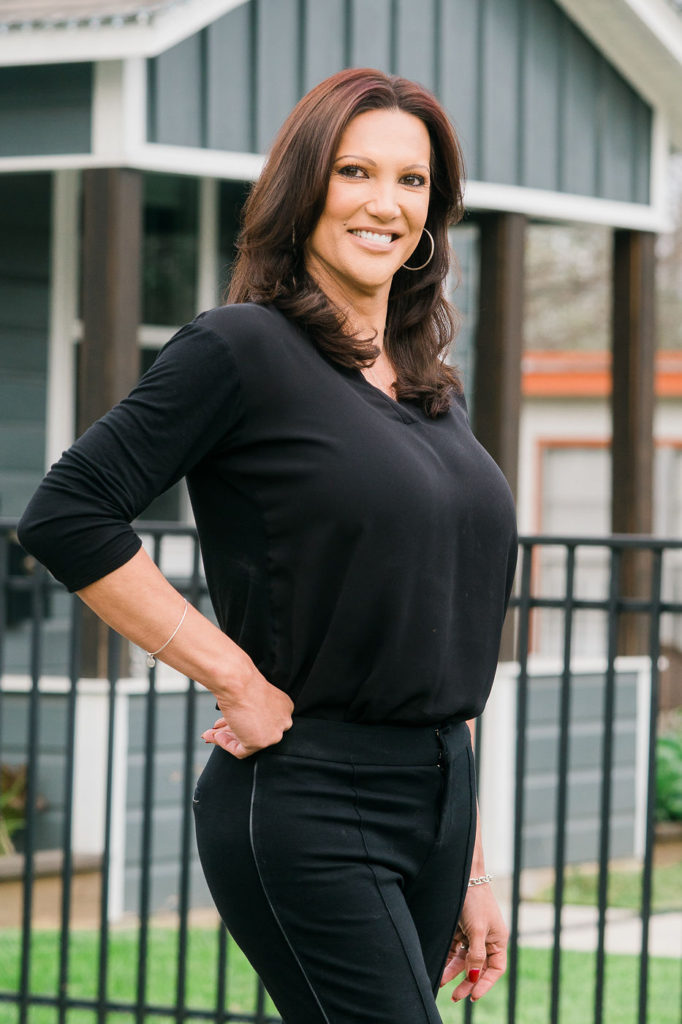
A friend of mine who lived in an apartment said that the office manager was constantly misgendering her on purpose to annoy her, so she just moved. They saw her as a woman but constantly referred to her with male pronouns on purpose just to prove the point they don’t approve of her being transgender.
Another agent told me his client had a showing with two guys, and the owners of the home called him and said they didn’t want to sell to “gay people or black people.” The Realtor cancelled the listing and said, “I’m not going to be able to work with you.”
You’d think these things don’t really happen, but they do, and I think it’s important for people to know that it’s happening. It’s sad we have to worry about it, and if we had protections, people would probably feel more confident and comfortable knowing that even if we are discriminated against, there would be some recourse.
PIP: So you’ve gone from being bullied for being trans to now being president of the local chapter of this LGBT advocacy organization — does it feel good to be on the other side of that and be advocating for your community?
JZ: Yes, though I feel bad that I didn’t do more sooner. I feel like I could have done so much more when I was younger and been a better role model for other people. But I didn’t really have the opportunities to do it.
I also didn’t know what would happen once I got my real estate license. I was expecting to interview with brokerages and be declined or to be let go. I was waiting for the call to come in and say, “You’re not the right fit for our company” or “We’ll have to let you go,” because that’s what always happened to me. Then I thought, I won’t know if I don’t try.
Now I’m glad that I can be here to be a role model for others. My broker, Leesa Harper-Rispoli, is completely supportive. Most people in my office didn’t have experience working with trans people, but now that they’ve met me and two other trans agent who work with me, it’s become normal and it’s not such a big deal.
I’ve opened their minds, and other agents have even said, “Wow, thank you for sharing your story, because we wouldn’t have known what it’s like.” They wouldn’t have been exposed to trans people to realize we’re just like everyone else.
I was excited because I got Rookie of the Year and Community Hero of the Year for 2018 in my office! But of course I couldn’t do it without my clients and my friends and family. Who would have thought I’d go from an eighth-grade education to a GED and real estate license, and then to have done all this advocacy work — it’s unbelievable and exciting! I just wish I’d done it sooner.
It’s been nice to break the stereotypes so people can see that we really can do everything that everyone else can do. I think the most important thing about NAGLREP and why it’s so important is it’s been 50 years since the federal Fair Housing Act was enacted, but it still doesn’t include protections for LGBT people, and discrimination still happens to this day. Everybody deserves to be treated with dignity and respect and the right to homeownership. That’s what’s unbelievable, that we don’t have those federal protections that everyone else enjoys.
Connect with Jamie on Facebook.
All photos by Parker Radbourne.

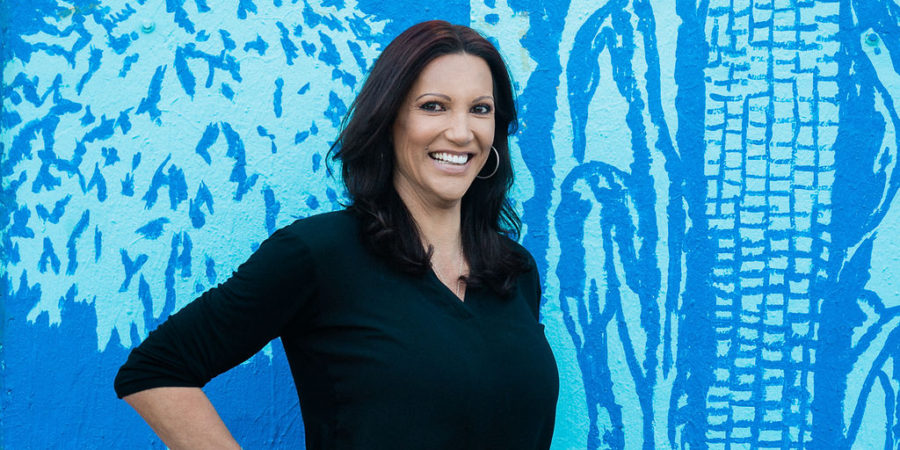
Jamie is awesome. If you need a realtor in San Antonio call her!